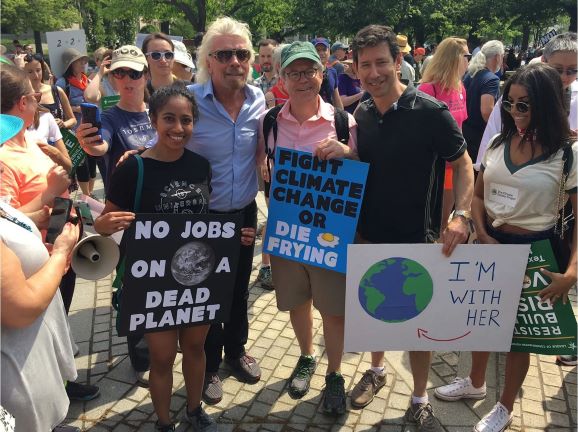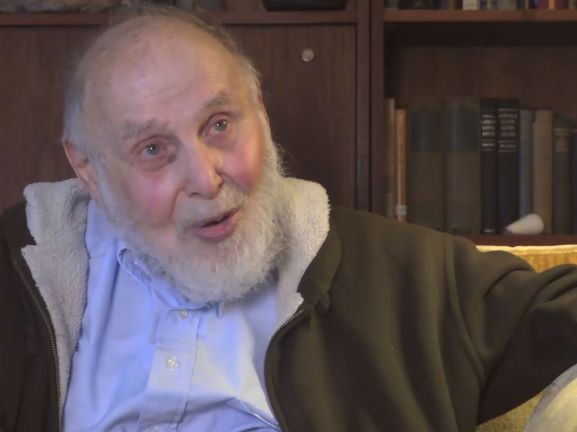Richard Branson Proposes his take on solving the climate challenge
Virgin Group CEO and billionaire Richard Branson is proposing a plan to tackle what he believes is the biggest threat facing the world-Climate Change

In his recent blog on Virgin’s website reacting to thousands of children who skipped school on Friday, Richard Branson supported the children and proposed that the world should ditch the idea of “carbon taxes” and pay a “Clean Energy Dividend” that would be later invested to develop clean energy technology.
The Clean Energy Dividend Branson refers to “could be the equivalent percentage that a carbon tax would have been, and based on cutting pollution at the rate the climate science shows is necessary,” according to the blog post.
What Is Carbon Tax?
A carbon tax is a fixed fee on carbon emissions. It’s usually charged per ton, and it targets fossil fuels that release carbon dioxide when they burn — primarily, coal, oil, and natural gas. The government collects the money, just like any other tax, but the money comes from a variety of sources.
Carbon taxes are designed to decrease reliance on dirty power, so they hit fossil fuels directly at the source, levying wherever the carbon “enters the economy.” That means coal mines, oil and gas wells, or import terminals. Taxes, in turn, drive up the cost of these fuels, meaning individuals and businesses would have to pay more at the gas station or in their monthly utility bills with a carbon tax in place. This would make renewable energy alternatives more cost-competitive.
Branson went on to explain how the Clean Energy Dividend is different from a Carbon Tax. Unlike a carbon tax, that “money wouldn’t disappear into government coffers but would be used specifically to be invested in generating clean energy through wind farms and solar panels, as well as the development of more low carbon fuels and other breakthrough technologies. The companies, through those investments, can get that money back, plus dividends (it would be wise to have some independent governance to make absolutely certain that all companies comply with this remit.)”
His approach and idea stemmed from the failure of Carbon Tax as he went on to say, “Carbon taxes are of course well-intentioned. But others are sceptical that they will raise enough resources to tackle the problem, or if the money will actually even be spent on the issue. So aside from being unpopular with the companies, carbon taxes are also often unpopular with the public and unpopular with governments.”
His thoughts are not far from reality. According to reports and estimates, Decarbonizing the energy sector will alone take around US$700 billion per year, says IRENA, whereas right now, the world’s largest climate fund Green Climate Fund has only around $10 billion.

A dividend, on the other hand, offers many benefits as against Carbon Tax according to Branson. He argues that companies investing this money ‘should be happy’ as the investments they are ‘secure ones’ and ‘Millions of new jobs’ will be created through a climate change revolution. He further adds that ‘competition from clean fuel will rapidly drive prices of both dirty and clean fuel down’ which will make Governments very ‘happy’ boosting economies. That sounds suspiciously like India’s own high fuel taxes on petrol and diesel.
We believe that besides adding a positive spin to the term carbon taxes by calling it a Clean Energy Dividend, the big issue with Mr Branson’s suggestion is the push to remove oversight from the government to an ‘independent’ body, as he stresses. Whether people can learn to trust such a body over governments, however inefficient they are, is a critical issue. Because the corporate sector has usually proved to be far more agile and cleverer when it comes to ‘managing’ such a body for its own agenda. Even the current push back against carbon taxes in rich countries is a shock to people in poor countries like India, where they have been far more patient and understanding in the need for such taxes.
To read his blog click here.
Image Courtesy: Virgin.com








